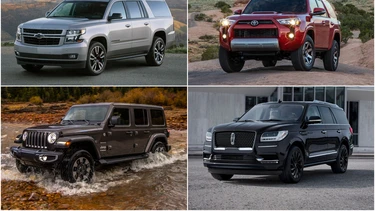WILL SUV’S FOLLOW THE SAME TREND AS CIGARETTES,ALCOHOLIC DRINKS AND DRUGS.?

SUVs, which range in size from large to gargantuan, consume more fuel than their smaller counterparts, produce more emissions across the board, and are more likely to kill or injure vulnerable road users than conventional equivalents. What’s more, they’re generally more expensive to buy and run. Why, then, are we ordering them in such large numbers? SUVs account for around half of all new cars registered in the UK, despite their considerable downsides. But what motivates people to buy products that are – on paper at least – so demonstrably flawed? It is an uncomfortable truth that many of us drive cars that are much too big for our needs, and most of these too-big cars are SUVs. Sports utility vehicles represent a sector of the market that has proved powerfully attractive to people who have been led to think that they need a wide, tall, capacious, all-terrain-capable vehicle, when in fact they do most of their driving in crowded cities and need no such thing at all. The success of the SUV over the past two decades – in which time it has pretty much seen off the estate car, the previous vehicle of choice for the upwardly mobile family – is largely a triumph of marketing over sense. A form of transport, initially aimed – in the form of the Range Rover – at rich people who needed a smart-looking car that could also drive across a grouse moor, was then given an expanded appeal in many other versions intended to attract those who had no moor but wished to look as if they might. The result is millions of big, heavy vehicles that – even in electric and hybrid form – clog narrow urban streets, are a nightmare to park, cause great damage to road surfaces and, when they are out of control, can be horribly destructive and dangerous, as the recent tragic event at a school in Wimbledon, southwest London, has shown. Because while SUVs have some practical advantages over smaller cars, they’re also more profitable for their manufacturers, and consequently are marketed more aggressively. Car manufacturers were found to have doubled their expenditure on adverts for SUVs in the past 10 years, during which time sales increased by 80 per cent. To some extent, we’re buying these cars because we’re being told to. The same as cigarettes and other anti social products were promoted as must have goodies to be trendy. Global warming doesn’t want trends it needs serious action by all.



